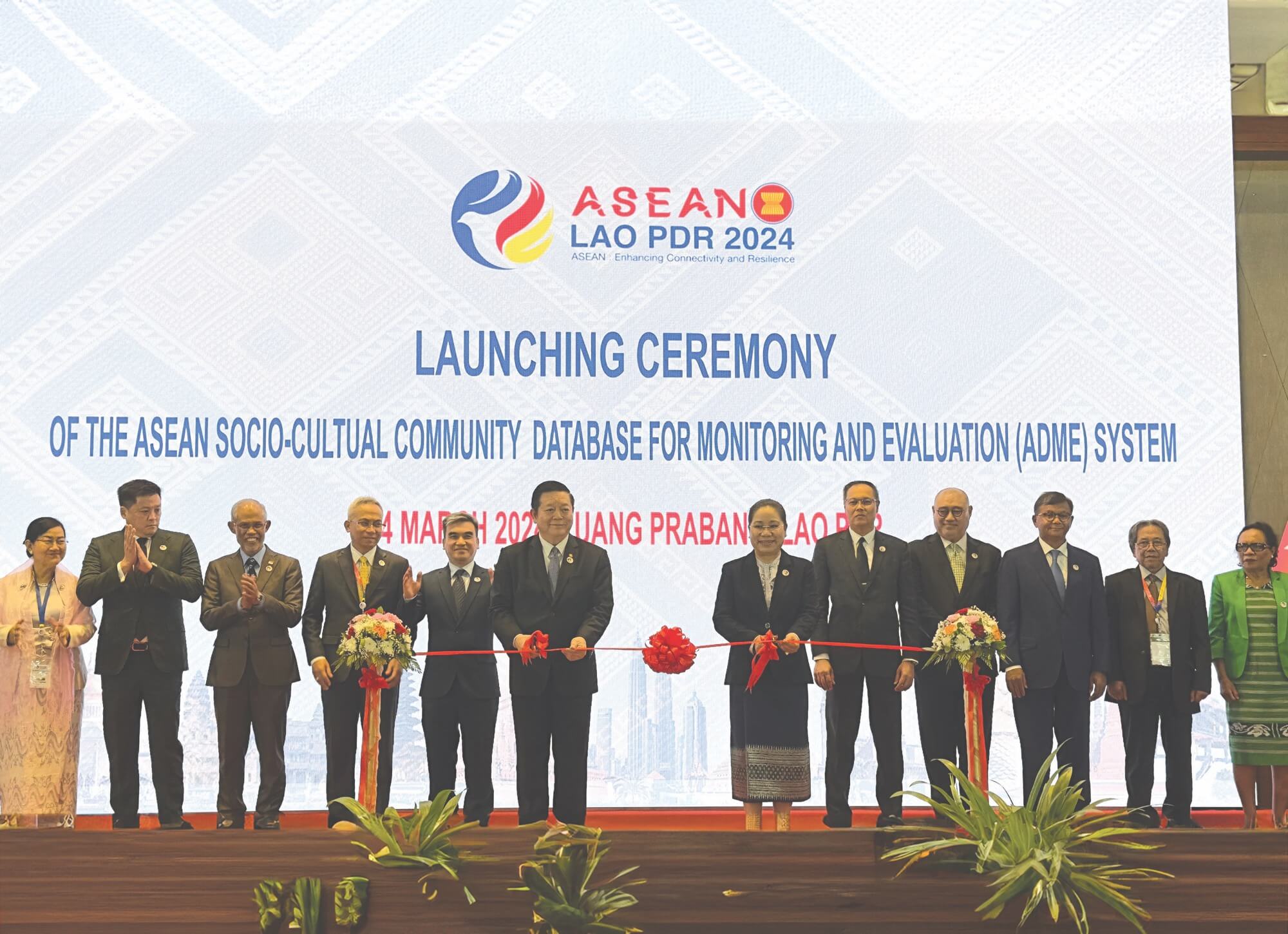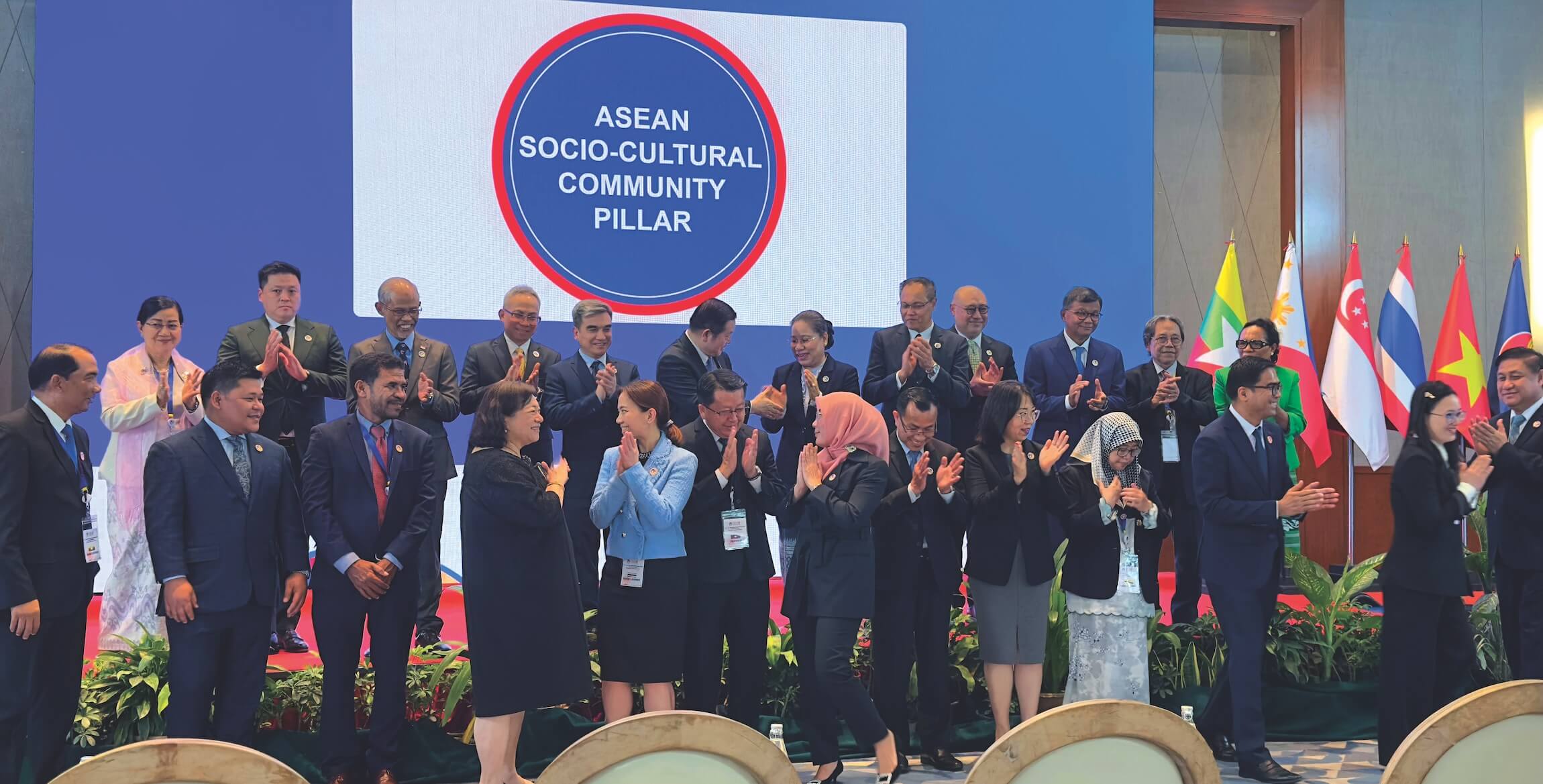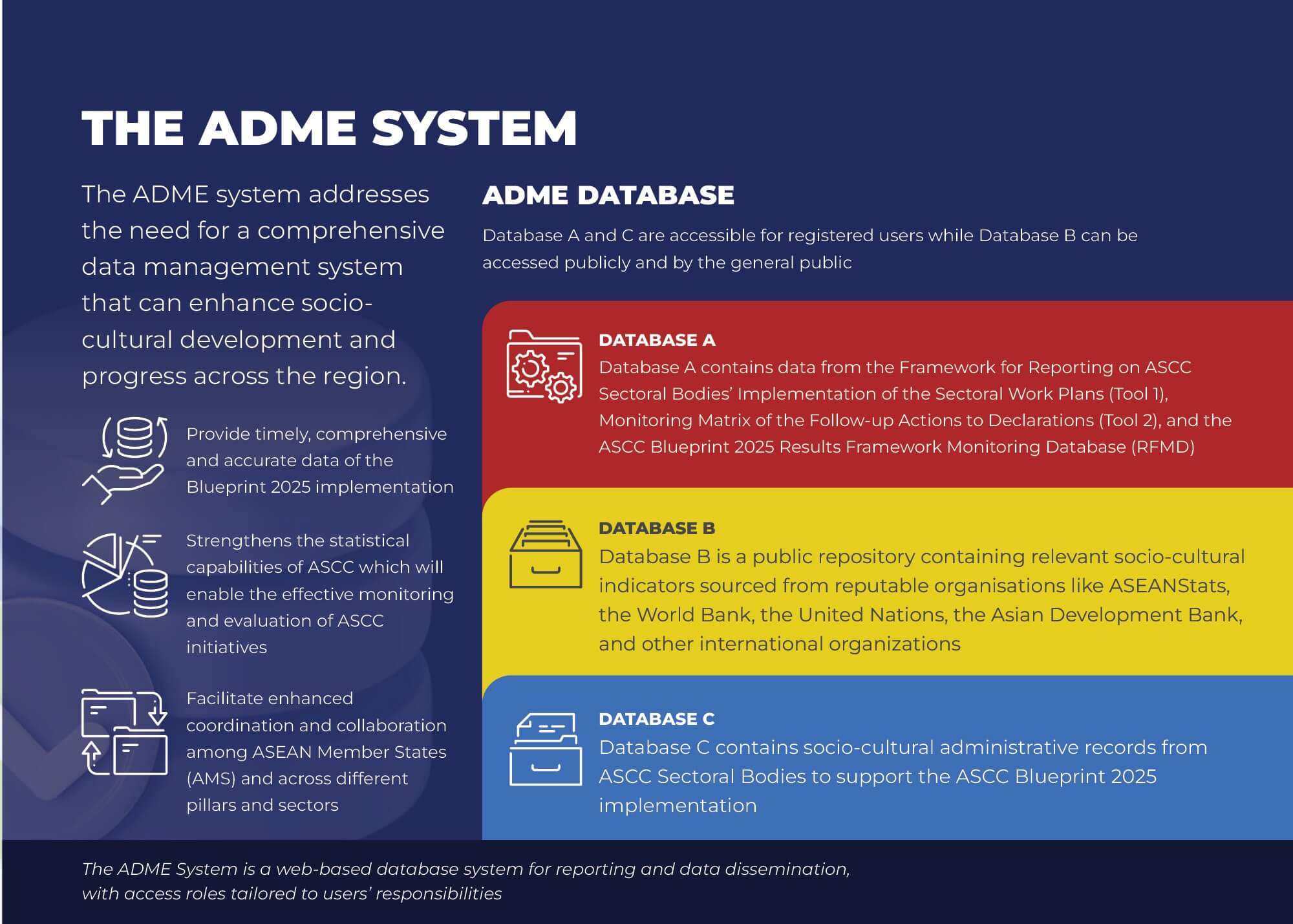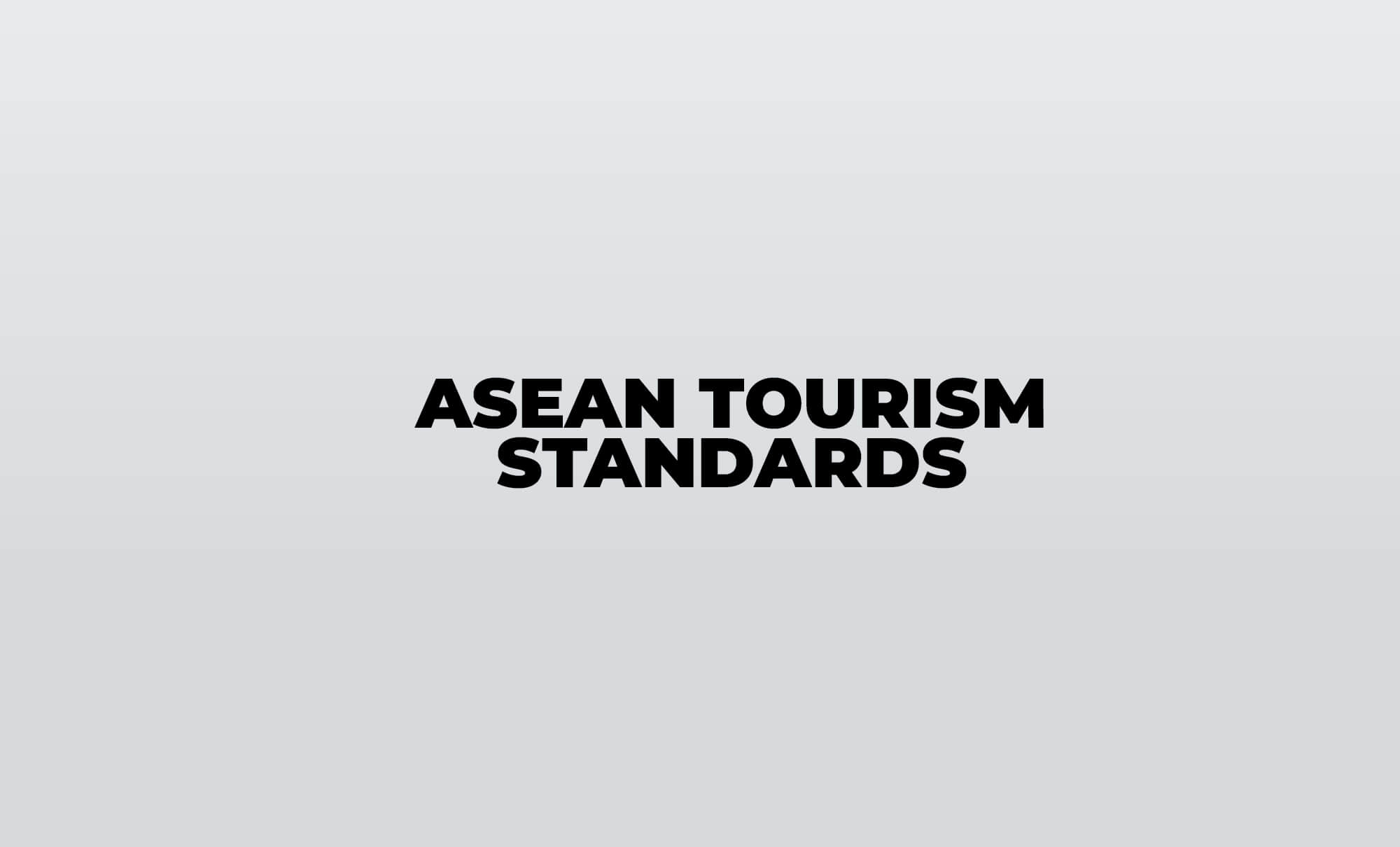




The ASEAN Socio-cultural Community (ASCC) Blueprint 2025 is a comprehensive roadmap towards realising an ASEAN Community that engages and benefits the peoples and is inclusive, sustainable, resilient, and dynamic by 2025. It is guiding policy frameworks and institutions for ASEAN Member States, and enhancing and strengthening their commitments and activities to achieve their targets across the ASCC sectors.
To clearly measure progress and to understand social and cultural developments in the ASEAN Member States, the Blueprint outlined a Results Framework mechanism to monitor and assess development results. The Baseline Study and the Mid-Term Reports of the Blueprint were completed in October 2020 and concluded that the pace of implementation has been satisfactory. However, the reports also revealed critical issues: there was a need to address limited data availability and capacity for data collection to monitor the Blueprint’s implementation and achievements. Recommendations were made to enhance the data collection and management system at both national and regional levels, which set the foundation for the development of the ASEAN Socio- Cultural Community Database for Monitoring and Evaluation (ADME) System.
A prototype of the system was developed in 2021, and there have been several consultations with sectoral bodies, ASEAN Secretariat divisions, and international organisations to identify needs, requirements, and good practices that can go into an effective and robust system. The system is designed to achieve three-fold objectives: to provide dependable data, strengthen the statistical capability of the ASEAN Member States, and facilitate cross-pillar and cross-sectoral coordination among ASEAN Member States. Aside from these three main objectives, the ADME System provides added value by promoting evidence-based research, analysis, and decision-making.



After a lengthy and careful development process, the ADME System is now ready for operation. It consists of protocols and a comprehensive web-based database containing indicators pertinent to the ASCC. Its key features include the three Databases:
- Database A facilitates the monitoring of ASCC Sectoral Bodies’ Work Plan implementation, follow-up actions to ASCC Declarations, and the progress of ASCC Blueprint 2025 Key Performance Indicators.
- Database B contains socio-cultural indicators that are relevant to the ASCC, collected by reputable organisations such as the ASEAN Secretariat, the World Bank, the United Nations, and others, to support more comprehensive decision-making.
- Database C houses administrative records collected and maintained by the ASCC Secotral Bodies in ASEAN Member States, which are converted into statistics, enabling regional comparison.
A good monitoring and evaluation system will only be possible with complete, accurate, and reliable data. The ADME System addressed this through measures, such as data validation, data verification, standardised data collection process, automated error detection, regular data audits, and feedback mechanisms.
Given the sensitive and confidential nature of the data housed within the ADME System, security has been an important consideration. The ADME System employs robust security features, including restricted server access within the ASEAN domain, advanced encryption, user activity tracking, periodic audits, and other preventive measures like firewalls and intrusion detection systems.
The launch of the long-awaited ADME System at the 31st ASCC Council Meeting in Luang Prabang, the Lao PDR was a momentous event, demonstrating ASEAN’s commitment to advancing evidence-based policy-making to advance ASEAN people’s wellbeing. The ADME System was launched by the ASCC Council Chair, Suanesavanh Vignaket, and the ASEAN Secretary- General, Dr. Kao Kim Hourn. It was witnessed by the ASCC Council Ministers, ASCC Sectoral Bodies’ Chairs from Lao PDR, SOCA (Senior Officials’ Committee for ASCC Council) Leaders, and members of the press.
To ensure that the ADME system achieves its objectives and brings tangible results in the current Blueprint and future editions of the plan, the 31st ASCC Council Meeting encouraged ASCC Sectoral Bodies to socialise the ADME System across relevant users of their agencies and organisations, and embed the system as a tool for their evidence-based planning and policy formulation. Such efforts will ensure a robust monitoring and evaluating system for years to come.








